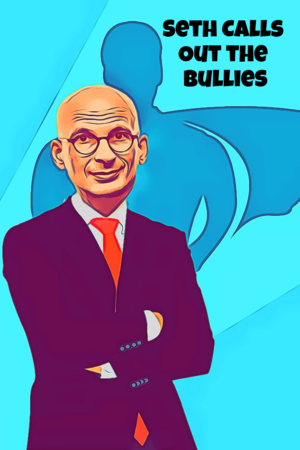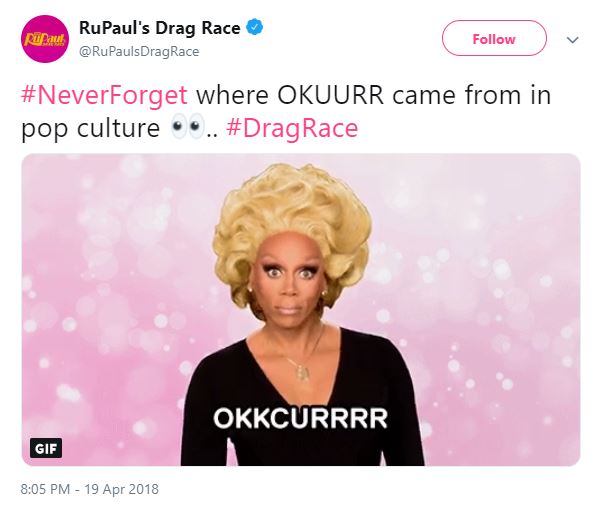Last week, we saw the latest installment in the “trademark bullying” saga. But this time was different. Instead of lawyers fighting amongst themselves, DuetsBlog brought out the big gun: Seth Godin. You can read the entire piece here. I like Seth Godin, and so do lots of other people (hence, the “big gun”). I read the comments (over 30 from my count). It seems to make people feel better to have someone with credibility give voice to their frustration.
I’m not against feeling better; mental health is a big deal. But as I read situation after situation, I am struck by how cases of trademark bullying almost always turn out: The small business loses.
Perhaps they don’t lose in the legal sense, but they lose in nearly every sense that matters to a small business: Time, Energy, Money, Resources, and Attention. Every moment addressing a trademark issue is a moment not invested in their business. Small businesses do not have any of those assets to spare. Large organizations do. They have legal teams that shield their workers from the ongoing drama. They have marketing budgets to drown out negative publicity. If all else fails, they have the resources to outlast you. In over 10 years of public attention, is it any wonder their behavior hasn’t changed?
Public shaming feels good, but it is not working.
It’s time to act.
To act, small business owners need reliable information about their risks. They need that information in advance of a trademark filing, and even in advance of first usage – after-the-fact litigation or advertising insurance don’t solve the problem. And finally, they need accessible and affordable information – calling your lawyer before each decision is not realistic.
In other words, small business owners need an ounce of (affordable) prevention, not a pound of cure.
Here’s my proposal.
To explain it, I am going to adapt Guy Kawasaki’s new business pitch format. At the end, I am going to ask you to invest. Let’s go.
Define the problem.
Trademark owners rightfully defend what they’ve built. However, when they overstep, there is no downside for their behavior. Even if they “lose” in court, they don’t really lose. They create a “chilling effect” for future conflicts. Additionally, they can restrict the distraction in their organization to only their legal team (who, to them, this is not a distraction). By contrast, there is plenty of downside for the small business owner. An unfavorable result in a lawsuit can put a small company out of business. But even if you win, you lose. Distractions are killers.
How does your product solve that problem?
Prevention is the best cure. Imagine a “Trademark Risk Score” much like a credit score. At “1” might be a name you completely invent from random characters. At “100” might be naming your tech company “Big Apple Computers” – an algorithm automatically scores everything in between.
Underlying magic or technology.
Building the algorithm seems easy, but it is not. Factors could include the number of existing trademarks, the size of the companies with those marks, matches in categories of use, length of trademark ownership, recent court decisions or filings, etc. But those factors don’t make an algorithm any more than ingredients don’t make a recipe. The “magic” here is using professional attorneys to “train” the algorithm and improve it.
Business model.
Small business owners could buy access to the system as a one-time purchase (like a “risk check”) or as a subscription (like a “regular checkup”). Accelerators and angels offer this subscription as a service to their startups. I could even see entrepreneurial publications (cough, cough) providing this to their subscribers as an add-on. Lawyers could advertise their services. You get the idea.
Go-To-Market plan.
Aggregators of small businesses are key to the strategy; reaching them 1:1 is cost prohibitive. Fortunately, there are plenty of accelerators, gig economy supporters (e.g. WeWork), and trademark lawyers in the world.
Competitive advantages.
The biggest competitor to this idea is a data aggregator named Trademarkia. However, their service still relies on you as the small business owner to know what you’re looking for (and I don’t think their search functions or aggregation is all that “smart”). If you’re confused, they offer expensive add-on services ranging in cost up to $10,000. That’s not going to fly for the average small business owner. They need something easier to understand and digest.
In this proposal, you plug in a few details, the algorithm spits out a risk score. Is it perfect? No. Will it protect you? No. But it will give you critical information you need to make an informed decision on next steps based on your risk tolerance.
Management team.
This solution will require three key groups of people – tech (to write the learning algorithm), lawyers (to train it), and marketers (to promote it). I wonder if I know any of those people who might be reading this?
Financial projections.
Based on the 300,000 (or so) new businesses started in the United States each year, and a 20% penetration rate for my TAM, and a $100 subscription price, I calculate about $6 million in annual revenue. Back of the napkin, but it’s a business.
Rollout plan and milestones.
I am putting my money where my mouth is – with hard cash. I am committing publicly to the first $1,000. That’s (obviously) not enough to get started, and there is hardly enough detail in this “proposal” to make a formal investment decision, but perhaps it’s enough to get others interested and begin the conversation.
Hate this idea? Awesome! Use it (copyright free) to come up with your own idea.
Just don’t keep public shaming. That’s not helping anyone.
The post Public shaming is not a solution to trademark bullying. Let’s build one. appeared first on DuetsBlog.



 is a trademark. Entrepreneur is simply a word.
is a trademark. Entrepreneur is simply a word.

